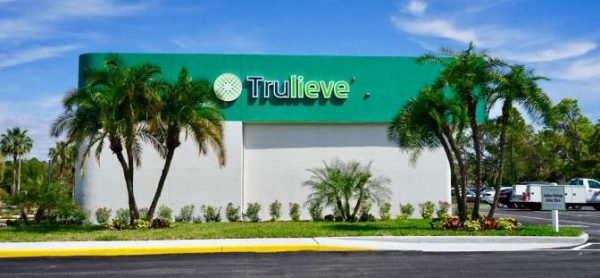Trulieve Throws the Kitchen Sink at Adult-Use Cannabis in Florida
MIAMI — (HCN) As Florida’s November 5th election approaches, Trulieve, a dominant force in the state’s medical cannabis market, is making an unprecedented push to legalize adult-use cannabis. With a jaw-dropping $141 million contribution to the Smart & Safe Florida political committee, Trulieve has funded nearly the entire campaign for Amendment 3—a proposed constitutional amendment that would legalize cannabis for adults over 21.
Since 2022, Trulieve has poured more than $92 million into Smart & Safe Florida, which leads the Yes on 3 campaign. By late August, the committee had invested over $76 million in promoting the measure.
The stakes are high: if Amendment 3 passes, Florida would join a growing number of states with legalized recreational cannabis, paving the way for Trulieve to expand its influence and add to its 156 dispensaries statewide. Last year, Trulieve reported $1.13 billion in revenue, including a record $202 million in cash flow from operations.
According to the ballot language, Amendment 3 would allow adults to “possess, purchase, or use cannabis products and accessories for nonmedical personal consumption by smoking, ingestion, or otherwise.” Polls show strong support, with a recent survey by The Hill and Emerson College indicating that 63% of respondents would vote “yes,” while 27% oppose and 9% remain undecided.
This broad support is a boon for Trulieve, which has positioned itself as an industry leader in promoting safe, regulated cannabis. Trulieve spokesperson, Steve Vancore, emphasized the public safety angle, arguing that legalization provides a controlled, safer option for consumers, that otherwise, are forced to rely on the illicit market, with its risk of tainted products.
“If you buy it legally, you can consume it in the privacy of your own home without the risk of it being laced with drugs like fentanyl,” Vancore said in an interview with Caplin News.
Monopoly or Market Opportunity?
Amendment 3 has drawn fierce opposition from Florida’s Republican leadership, including Governor Ron DeSantis and Senate President-designate Ben Albritton. DeSantis argues the amendment would effectively deregulate cannabis use, claiming, “This state will start to smell like cannabis in our cities and towns; it will reduce the quality of life.”
DeSantis’ Vote No on 3 campaign warns that the amendment would create a “monopoly” for large cannabis companies, like Trulieve, and restrict the cannabis market to a select few.
Critics also warn that the amendment could exacerbate issues like impaired driving and youth access. Jessica Spencer, Advocacy Director for No on 3, expressed concerns about corporate greed, predicting the move could lead to Trulieve monopolizing Florida’s cannabis landscape, likening it to the dominance of retailers like Walmart or CVS.
“This is not about personal freedom,” Spencer said. “It’s about a monopoly of mega cannabis corporations coming into our state.”
Trulieve, however, points out that Amendment 3’s language includes provisions for competition, allowing Florida legislators to issue licenses beyond major cannabis treatment centers. “Somebody could argue that Trulieve, by funding this campaign, is actually creating more competition for itself,” Vancore noted.
Economic Impact
Smart & Safe Florida spokesperson, Morgan Hill, emphasized the financial benefits the amendment could bring, referencing a state financial report that estimates between $195 million and $431 million in new tax revenue annually.
“That’s money that could support schools, law enforcement, infrastructure, and other public programs,” Hill said.
If Amendment 3 passes, the measure will take effect after a six-month delay, allowing time for the Florida legislature to establish regulatory frameworks.
“Floridians are already consuming cannabis,” Vancore said. “Let’s regulate it. Let’s make it safer.”




































